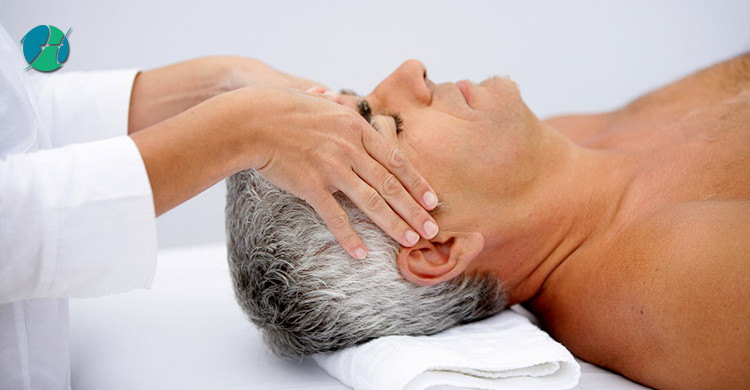Massage Therapy and Anxiety in Cancer Patients

It’s no surprise that a diagnosis, followed by the difficult and sometimes debilitating treatment process, can cause significant anxiety in cancer patients. The entire experience can be a painful one, fraught with fear and a sense of overwhelming dread. Can massage therapy provide a respite for patients in cancer treatment?
Pain and Anxiety in Cancer Patients: A Primer
The stress of a cancer diagnosis alone can be overwhelming for most patients. Add in the physical toll exacted by both the condition and the treatment protocol, the physical and emotional pain of living with cancer and worries about the impact of cancer on family and friends, and it becomes apparent there’s more to fighting cancer than targeting abnormal cells.
Patients battling cancer need supportive care that extends beyond clinical interventions aimed solely at treating the disease. The laundry list of related side effects and comorbid conditions is staggering, and can be overwhelming even to those who are not personally affected by a battle with cancer. They include:
- Anemia
- Loss of appetite
- Bleeding and bruising easily
- Constipation and/or diarrhea
- Delirium
- Swelling
- Fatigue
- Hair loss
- Infection and neutropenia
- Lymphedema
- Concentration and memory struggles
- Problems with the mouth and throat
- Nausea and vomiting
- Peripheral neuropathy
- Pain
- Changes to skin and nails
- Sleep disturbances
- Urinary tract and bladder problems
With these and other conditions in conjunction with a cancer diagnosis, it’s no surprise that rates of anxiety in cancer patients are high. Fortunately, many of cancer’s physical and emotional side-effects can be somewhat mitigated by massage therapy.
The Effects of Massage Therapy on Pain and Anxiety in Cancer Patients
Complementary and alternative treatments are becoming more and more popular with patients fighting a variety of chronic ailments, but massage therapy shows particular promise when it comes to aiding in the treatment of pain, depression and anxiety in cancer patients.
Research indicates those being treated for cancer show symptom scores for pain, fatigue, stress, anxiety, nausea and depression reduced by almost half when treated with Swedish, light touch and foot massage. This means patients are reporting meaningful relief from myriad symptoms without the introduction of new medical or pharmaceutical interventions.
Since massage can lower cortisol levels while increasing production of serotonin, it’s also an effective method for naturally boosting the body’s ability to fight of feelings of anxiety and stress. Reducing pain can contribute to better sleep, while the act of receiving a massage allows patients to feel a moment of relaxation where their diagnosis is not the sole focus of care. A licensed massage therapist who understands the unique needs of patients with cancer can have a significant effect on quality of life and a sense of overall well-being.
Massage therapy is very low-risk for most patients, non-invasive and does not involve additional medications. Still, it’s important for patients with cancer to discuss the addition of massage therapy to their self-care routine to ensure it’s not contraindicated for their unique form of the condition. Otherwise, it’s an effective, safe and reliable way to ease pain, insomnia and anxiety in cancer patients.

